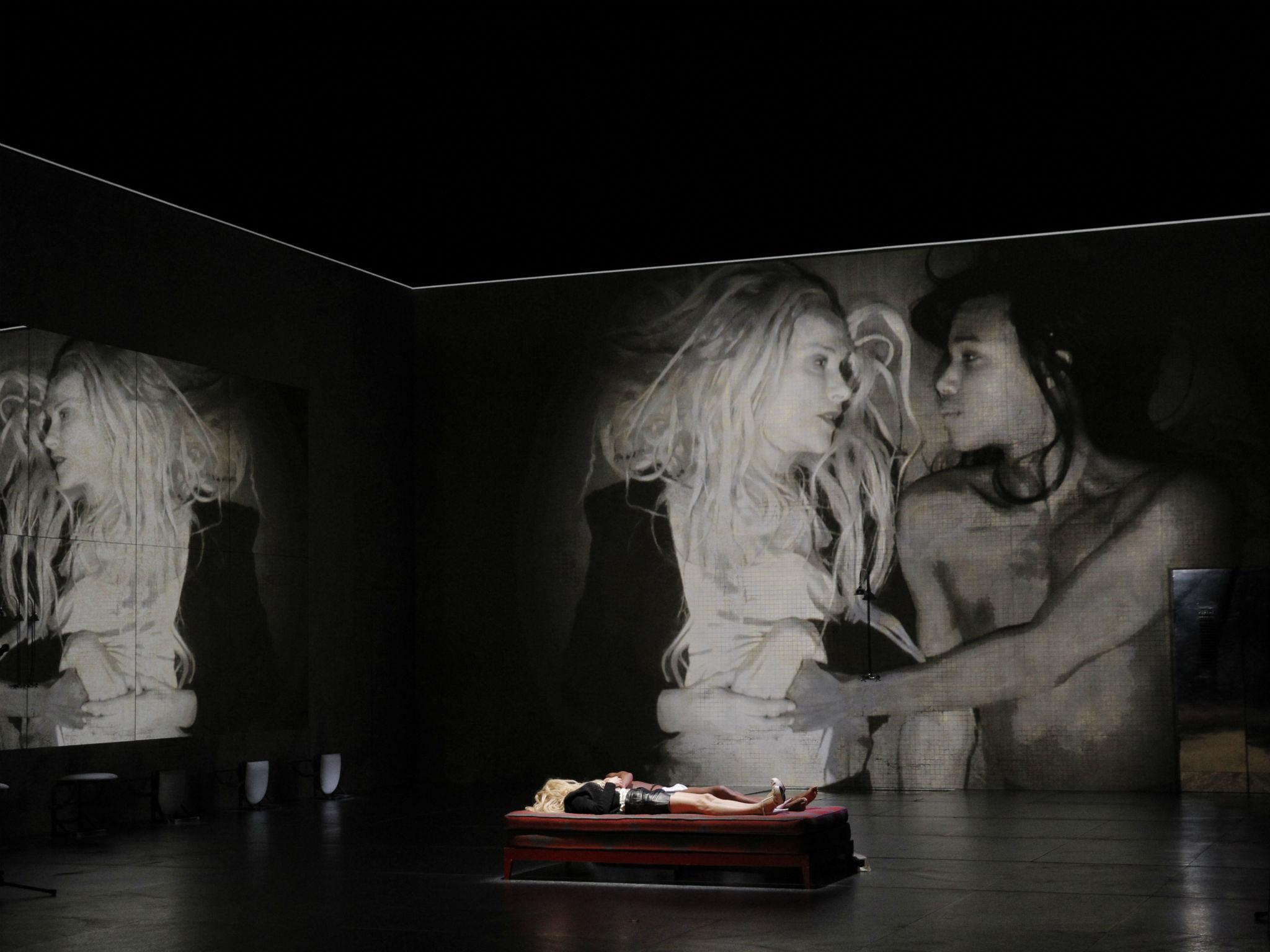Phaedra(s), Barbican Theatre, review: 'Huppert's achievement at keeping you compelled feels all the more prodigious'

Your support helps us to tell the story
From reproductive rights to climate change to Big Tech, The Independent is on the ground when the story is developing. Whether it's investigating the financials of Elon Musk's pro-Trump PAC or producing our latest documentary, 'The A Word', which shines a light on the American women fighting for reproductive rights, we know how important it is to parse out the facts from the messaging.
At such a critical moment in US history, we need reporters on the ground. Your donation allows us to keep sending journalists to speak to both sides of the story.
The Independent is trusted by Americans across the entire political spectrum. And unlike many other quality news outlets, we choose not to lock Americans out of our reporting and analysis with paywalls. We believe quality journalism should be available to everyone, paid for by those who can afford it.
Your support makes all the difference.It’s 20 years since Isabelle Huppert last appeared in a London theatre. She certainly makes up for lost time now, delivering a tour de force of extraordinary physical abandon and mesmeric skill in this three-and-half-hour mash-up of different takes on the legend of Phaedra, the woman who, in Greek myth, is seized by a fatal passion for her stepson, Hippolytus. The actress is barely offstage during this multi-media marathon production, by Polish director Krzysztof Warlikowski, which comes to the London International Festival of Theatre from the Odeon-Theatre de l'Europe in Paris.
We're offered three versions of the story in an evening that contrives to arouse admiration and irritation by turns. The first is a post-modern account, with glances at Euripides and Seneca, by Lebanese-Canadian author Wajdi Mouawad. Huppert totters on in fur-coat and killer heels, resembling a dominatrix as the goddess Aphrodite, who explains how she plans to make Phaedra the instrument of her revenge against Hippolytus. She then morphs into Phaedra (wild blonde wig; leather mini-skirt), and the 63-year-old actress astonishes with her uninhibited depiction of a woman rendered feral with frustrated desire. She throws up, chafes her bloodied crotch and crawls strickenly across the floor of Malgorzata Szczesniak's set which, depending on the light, can evoke a minimalist five-star hotel or the shower room in some “correctional” unit.
The centrepiece and most successful segment of the show is a revival of Phaedra’s Love (1966), Sarah Kane’s mordant reworking of the myth. The heroine'’ ardour is thwarted here in a diametrically opposite way. Instead of the traditional, militantly chaste Hippolytus, the stepson is a promiscuous, self-absorbed slob for whom sex is on a par with junk food. We see the reclusive prince (Andrzej Chyra) playing with his remote-controlled toy cars and watching an endless loop of the Psycho shower scene in a big glass cube that evokes his depressive sealed-off state. Sporting a pink two-piece, Huppert radiates the kind of restraint that’s a blink away from hysteria. The range is once again remarkable – from her evocation of the sheer ignominious absurdity of fellating Hippolytus in an attempt to win him over to the devastating dispassionate clarity which she delivers the X-rated stage directions.
The mood is lighter for the final part in which the actress appears as JM Coetzee’s eponymous character, the novelist Elizabeth Costello. Quizzed by an academic about her views on the intercourse between gods and humans, Costello argues that the immortals envy us our capacity for feeling in our finite lives. There are clips from two movies – Frances and Theorem – but it's a short extract from Racine's play Phedre (brilliantly performed by Huppert and Chyra, as the interviewer) that offers an unflattering comparison with Phaedra(s). The gyrating Arab dances of Rosala Torres Guerrero and the eloquent live video (which in the first throws projected images of the suicide-by-orgasm on to the walls) are very fine. But there's a sprawling, protracted air to the evening by comparison with the concentrated intensity of most individual stage versions of this myth After four hours of this fluctuating stuff, Huppert’s achievement at keeping you compelled feels all the more prodigious.
To June 18; 0845 120 7511
Join our commenting forum
Join thought-provoking conversations, follow other Independent readers and see their replies
Comments